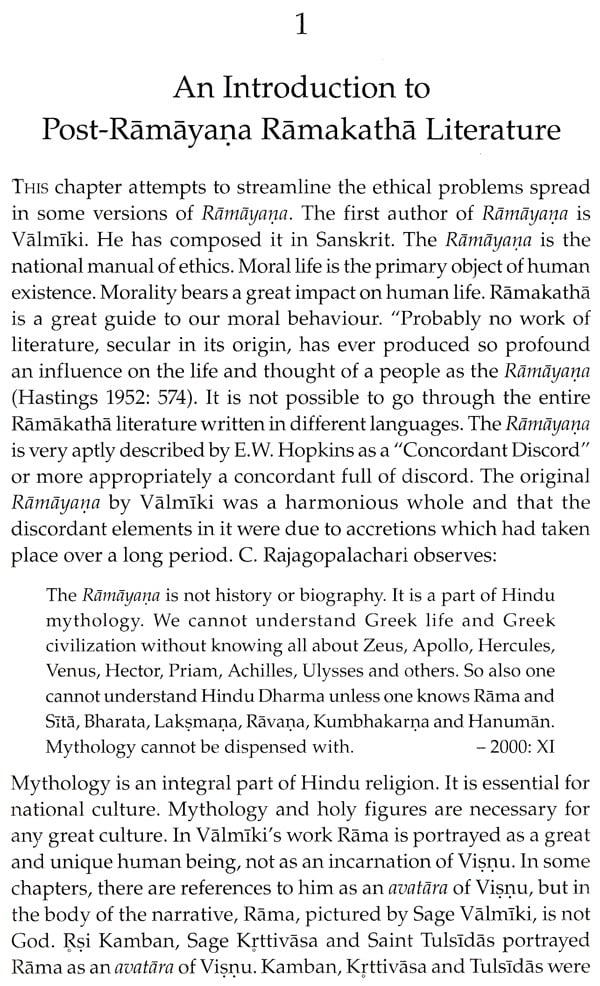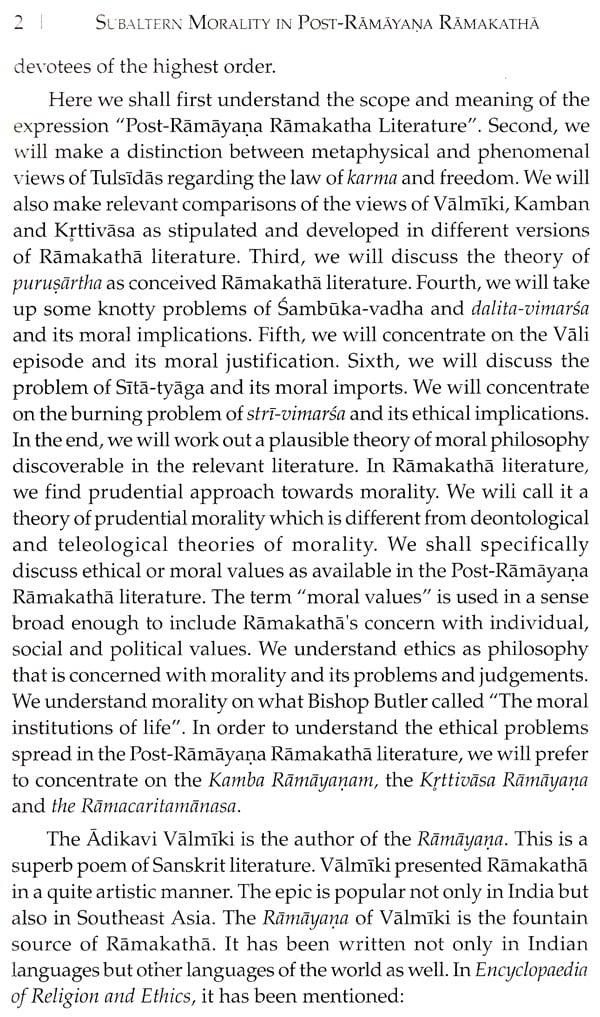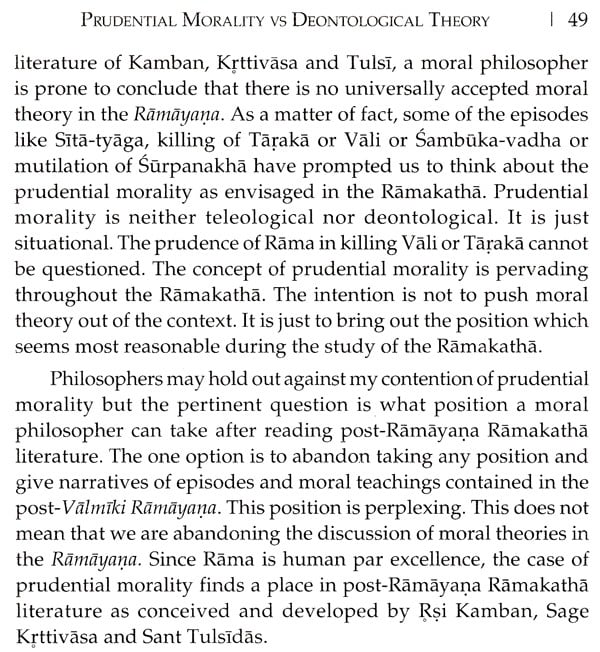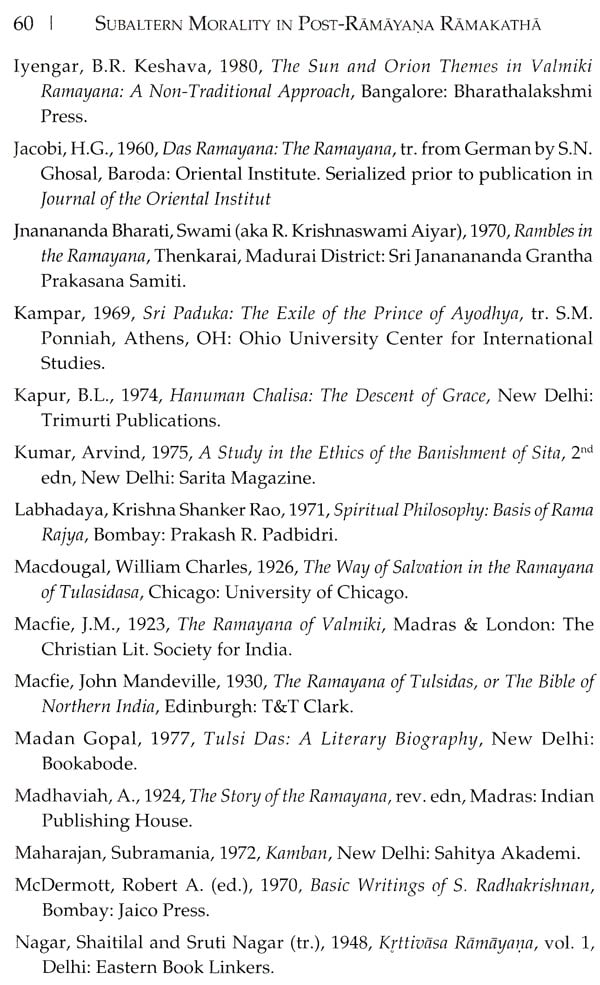
Subaltern Morality In Post-Ramayana Ramakatha
Book Specification
| Item Code: | NCZ135 |
| Author: | Ramesh Chandra Sinha |
| Publisher: | Indian Council of Philosophical Research and Motilal Banarsidass Publishers Pvt Ltd. |
| Language: | English |
| Edition: | 2021 |
| ISBN: | 9788124611005 |
| Pages: | 61 |
| Cover: | PAPERBACK |
| Other Details | 8.50 X 6.00 inches |
| Weight | 130 gm |
Book Description
SUBALTERN Morality in Post-Rāmāyaṇa Rāmakathā is primarily based on the Śrīrāmacaritamanasa of Tulsīdās, the Kamba Rāmāyaṇa of Mahrşi Kamban and the Kṛttivās Rāmāyaṇa of Kṛttivās Ojhā. These monumental epics address equally to the rich and poor, the elite and subaltern, the literate and illiterate, the old and young, and the scholar and layman. The popularity of Rāmakatha is far and wide.
It cuts the border of the East and West. It has been translated into several languages. The objective of this book is to reiterate man's faith in moral order that sustains life and human existence in the world. Evil force may threaten to disrupt the moral order but divine intervention will ultimately prevail. Keeping in mind man's quest for the epic like the Ramacaritamanasa, I have tried to deal with the modern ethical problems of gender equality and the theory of puruṣartha. It also highlights the Śambūka-vadha Kathā and its ethical implication. It deals with the ethical theory of prudential morality as opposed to the deontological theory of morality. The main contribution of the post-Rāmāyaṇa Rāmakathā is its regulative character. The concept of renunciation or detachment has been considered a high moral principle in secular life. As a matter of fact, Professor Rajendra Prasad suggested me to write on ethics of post-Rāmāyaṇa Rāmakathā. He was preparing a book on Hindu ethics. I submitted the manuscript and he discussed and corrected but the manuscript was long enough to be incorporated in his book. I simply changed the title as Subaltern Morality in Post-Rāmāyaṇa Rāmakathā, instead of Ethics in Post-Rāmāyaṇa Rāmakathā. This is primarily due to my concern with Śambuka-vadha and gender inequality. I consider the story of Sambūka-vadha as a narrative relating to sīmānta naitiktā.
**Contents and Sample Pages**














